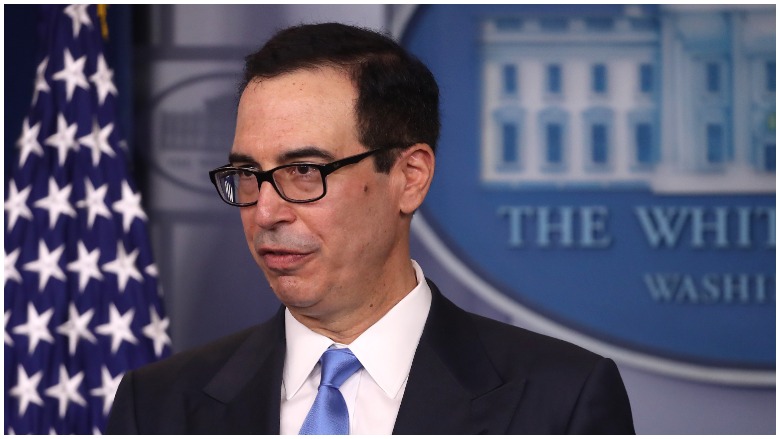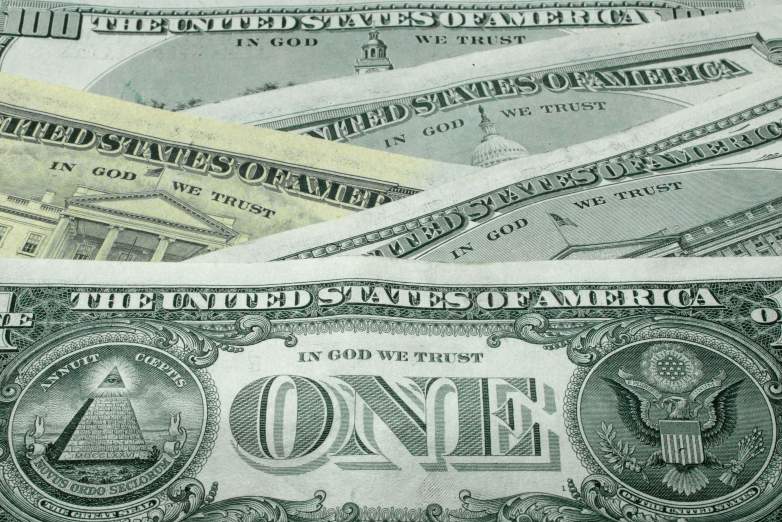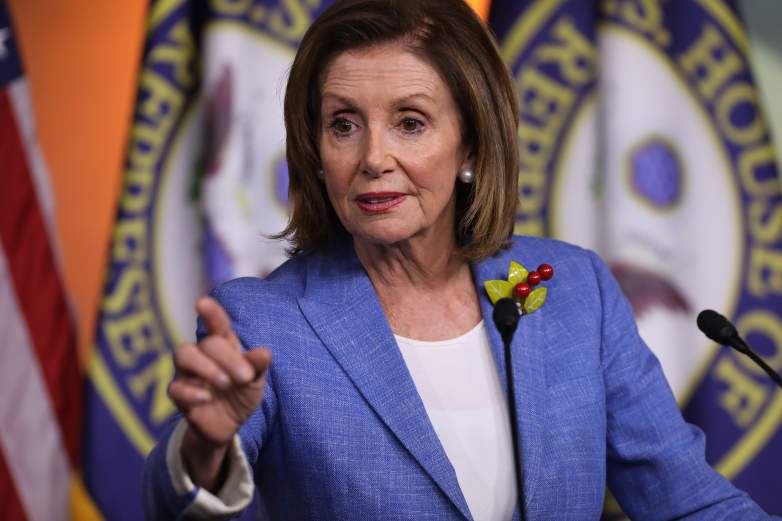
In a last-ditch effort to pass legislation before the November 3 election and assist the millions of Americans struggling to make ends meet, the White House proposed a $1.6 trillion counteroffer for another round of coronavirus relief.
Treasury Secretary Steven Mnuchin discussed the plan’s details with House Speaker Nancy Pelosi on Wednesday afternoon, September 30, including additional funding for state and local aid and an extension of federal unemployment benefits, according to an exclusive by Roll Call, citing “a person briefed on Mnuchin’s plan.”
Negotiations on Capitol Hill have been at an impasse as lawmakers continue to debate the overall price tag for the next stimulus package, with President Donald Trump’s administration and the Senate previously unwilling to go above $1 trillion.
On September 24, House Democrats began drafting a $2.2 trillion relief package, including additional extended federal unemployment benefits, another round of stimulus checks and funding for the Paycheck Protection Program, Politico reported.
“The president instructed us to come up significantly, so we have come up from the trillion-dollar deal,” Mnuchin said on Fox Business.
Here’s what you need to know:
Here’s What the $1.6 Trillion Counteroffer Includes

Getty
The White House counteroffer seeks a middle ground on some of the key issues negotiators somewhat agree on, including another round of direct stimulus checks as well as extended federal unemployment funds, Roll Call reported.
Part of the bill, according to the outlet, allocates:
- $250 billion for state and local governments: While the number is roughly half of what Democrats sought in their previous HEROES Act, the updated number shows a “willingness to compromise” on Republicans’ behalf, Forbes added.
- An extra $400 in federal unemployment benefits: Negotiators have also remained divided on the amount of additional federal unemployment aid for laid-off or furloughed workers as a result of the pandemic. The extra $400 payments proposed in Mnuchin’s plan would be retroactive to September 12 and extend throughout the rest of the year, Roll Call reported.
- $1,200 stimulus checks: Both sides of the aisle have seemed to agree on another round of direct stimulus checks. “According to a source familiar with the offer, there is directional consensus on continuing the framework used for the first round of payments with $1,200 for qualifying adults and $500 for qualifying dependents,” Forbes said.
- $150 billion for education: The funds will be allocated for education funding, including testing supplies and other infrastructure needs. “There’s general agreement needs have increased as schools across the country at are different phases of reopening for in-person learning,” Roll Call indicated.
- $175 billion in healthcare aid: The plan, according to Roll Call, would funnel $50 billion toward vaccine production and distribution and another $50 billion for hospitals and health care workers. Testing aid would bring the total healthcare cost up to $175 billion.
- $10 billion for the U.S. Postal Service: Postal Service funding has been another sticking point on Capitol Hill, as the Service prepares for an influx of mail-in ballots this election year due to safety concerns relating to the pandemic. Mnuchin proposed $10 billion in direct aid, while Democrats had previously pitched $15 billion.
A Deal Has Still Not Been Reached, but Negotiations Will Continue Today

GettySpeaker of the House Nancy Pelosi.
According to Roll Call, the Treasury secretary did not reach a deal with Pelosi on Wednesday afternoon — marking the first time the two principals met in nearly two months. Mnuchin did confirm on Fox Business, though, that an agreement has been reached on the topic of direct payments.
Negotiations between Mnuchin and the House Speaker are expected to continue Thursday, October 1, Roll Call added.
House Democrats also delayed Wednesday evening voting on their $2.2 trillion plan until Thursday, Forbes said.
READ NEXT: Did Joe Biden Finish Last in His College Class? No, but He Was in the Bottom Half